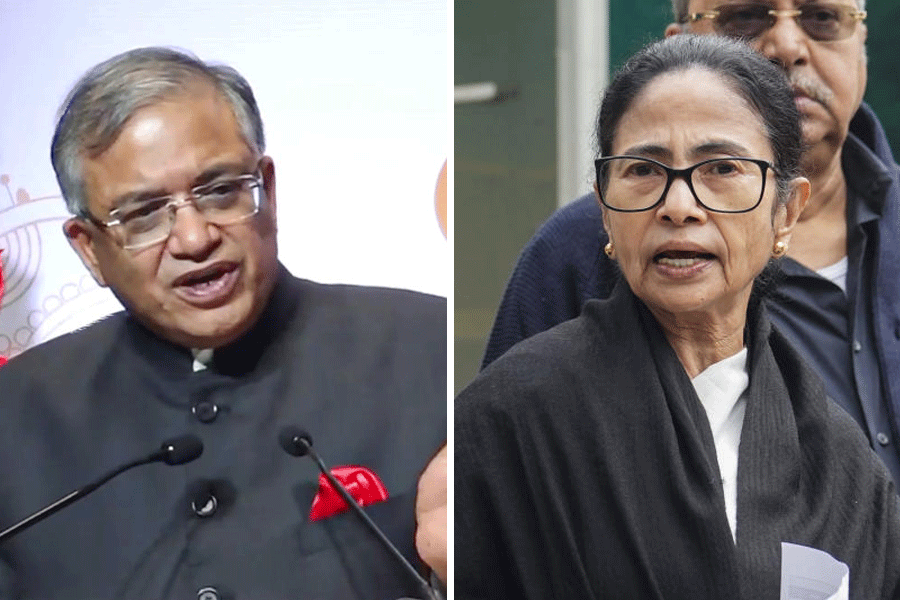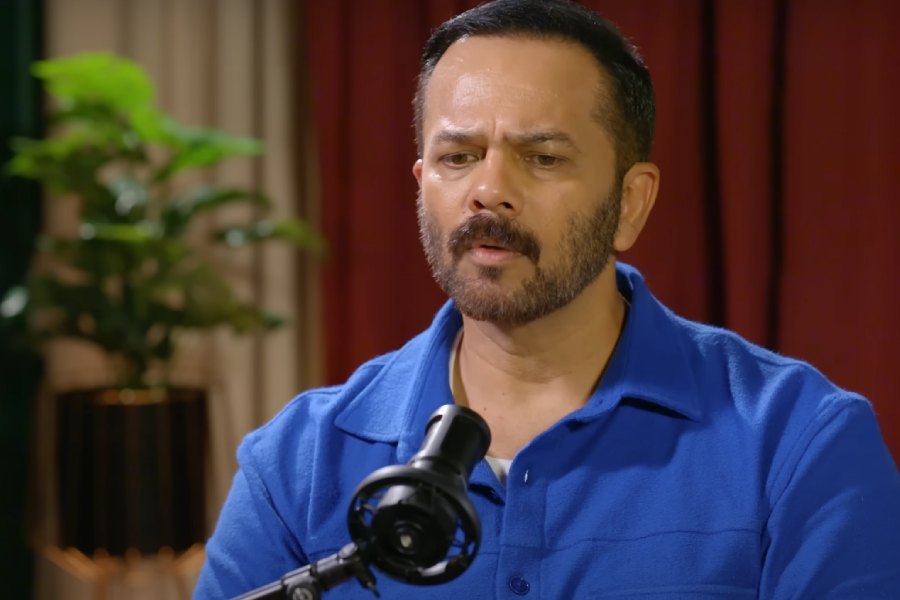 |
| Mohammed Chaman at his stall in Delhi’s Sadar Bazaar. Picture by Prem Singh |
New Delhi, Dec. 25: Arvind Kejriwal’s supporters may be appalled to hear that China “capped” his dream debut. Not Mohammed Chaman.
The Delhi trader supplied the “retro” caps that became the Aam Aadmi Party’s (AAP) emblem and a standout feature of its mass-driven campaign.
The caps are made of “China Net” — a type of polymer imported from China and known for its durability. But its edge lies in the price — such caps cost Rs 3 to Rs 5 each against Rs 10-12 for those made from traditional textiles. For the AAP, Chand did it for Rs 3 each.
The popularity of China Net suggests communist production lines in China, the country with the largest population in the world, are fuelling political competition in India, the world’s most populous democracy. Traders say even Narendra Modi masks have been made from the material.
But such comparisons had seemed pointless seven months ago to Chaman, who didn’t see Kejriwal as a credible customer who could pay his bills.
The 39-year-old met Kejriwal the first time in May this year to show him samples. But looking around at the AAP’s nondescript office and its party chief’s earthy demeanour, Chaman was not sure about the amount of business he would get.
So the next time Chaman was called, he refused to meet Kejriwal. “When he (Kejriwal) started his door-to-door campaigns with just five people tailing him in Connaught Place against Sheila Dikshit, I thought he was wasting his time,” Chaman recalled.
The trader said he and his family had been loyal Congress supporters. He inherited the business of supplying publicity material to political parties from his father. “My father had been in business since the time of Indira Gandhi and I have grown up seeing the Congress all my life. AAP was a new entrant and I had been doubtful about their fortunes,” Chaman said.
The first AAP order was for 2,000 caps, a small amount for traders looking forward to bigger volumes so they can use labourers and machines optimally.
Unlike their rivals who have much deeper pockets, AAP leaders made it clear they wanted the cheapest material available.
Another difference, Chaman said, was that AAP payments would be by cheques instead of cash that other parties preferred. Also, he was asked to furnish bills. “I wasn’t so sure about the deal. Who pays by cheque? We only deal in cash here. But AAP insisted that they are honest and will not run away with my money, I decided to take a chance,” Chaman said.
AAP leaders bargained hard to drive down rates to Rs 3 for each cap, urging Chaman to “contribute” to the fledgling party and its mission by slashing profits, Chaman said. “I usually earn (a profit of) 50 paise on each cap, but for AAP I halved it to 25 paise.”
Later, the orders kept pouring in and at the end of the campaign, Chaman said he had sold more caps to the AAP than both the Congress and the BJP combined. “Initially, I was not sure they (AAP) would be able to pay up. In case of other parties I always take cash first. But AAP has not defaulted on payments till now,” Chaman said.
The AAP has bought over three lakh caps so far. Chaman expects orders for at least a lakh more ahead of Saturday when Kejriwal and his ministers are slated to be sworn in.










